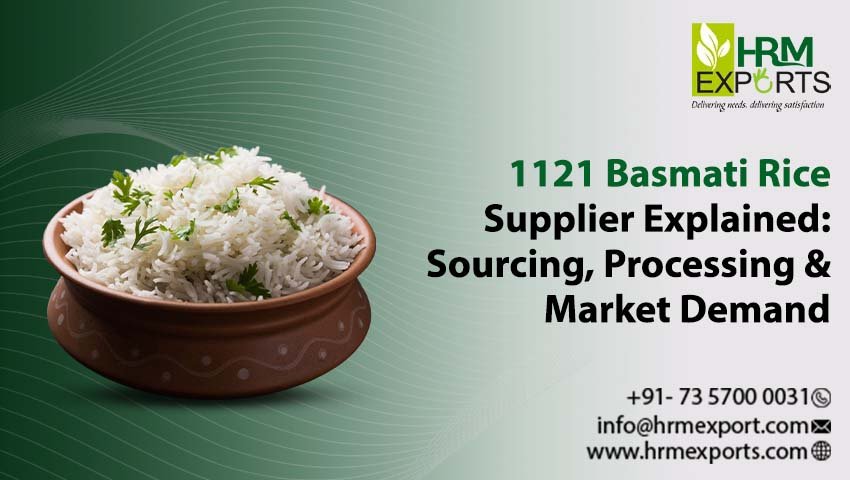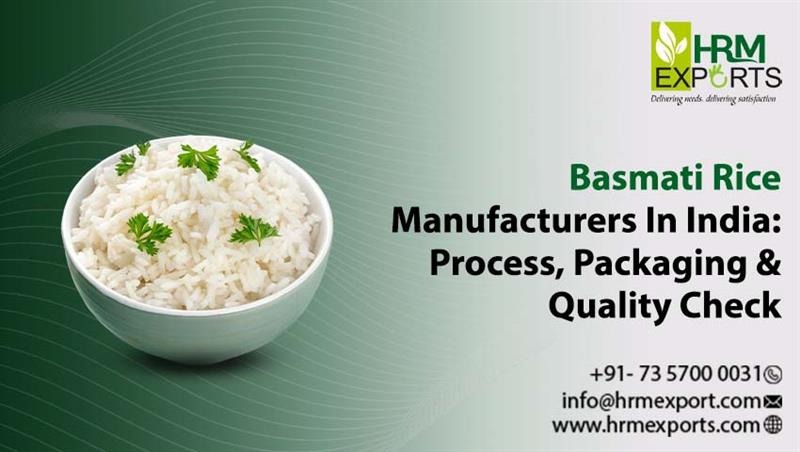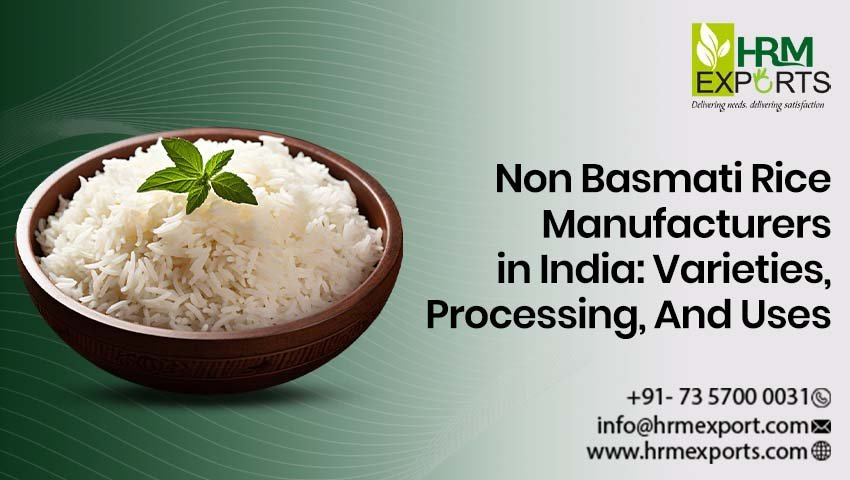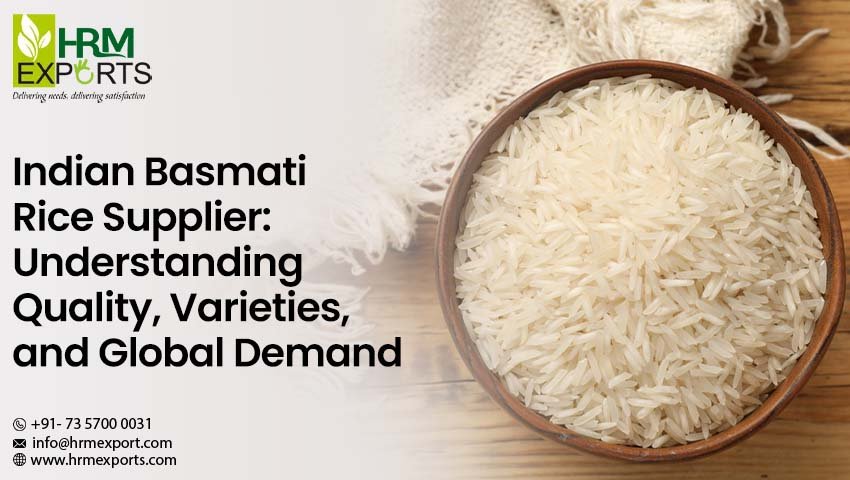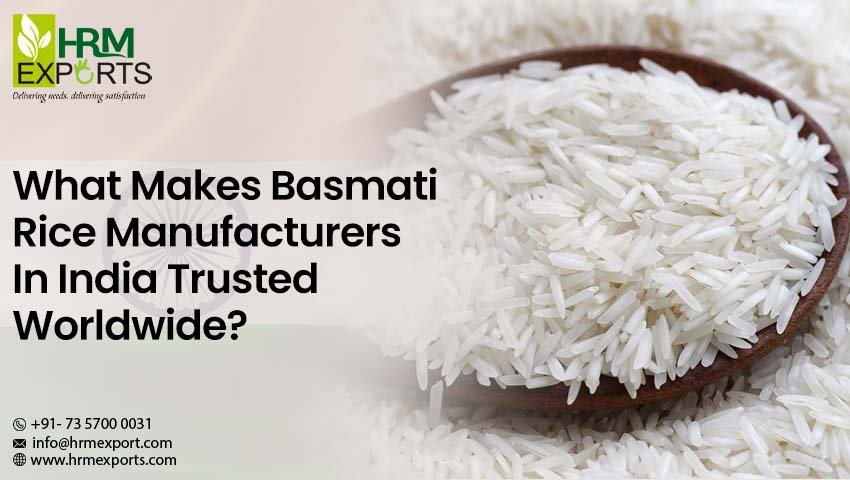Blogs
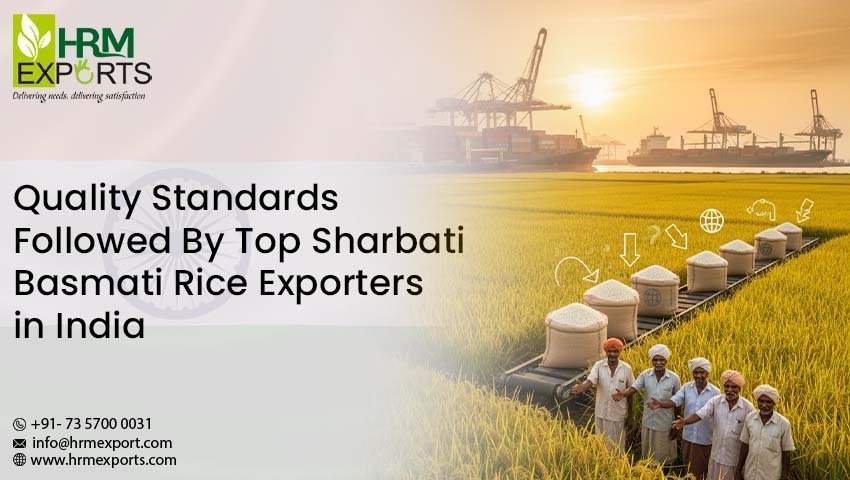
Quality Standards Followed By Top Sharbati Basmati Rice Exporters in India
Sharbati Basmati Rice Exporter in India - Sharbati Basmati rice has an aroma, long grains and cook soft characteristic. It is among the most demanded varieties of rice in India that are demanded in the domestic market as well as in the international market because of its quality and price. To preserve this reputation, it is necessary to have high standards of the quality and cautious production.
Searching through the exporters of the best Sharbati Basmati Rice Exporter in India, the quality assurance is the point that differentiates the best of the best. This blog will give an explanation of the key standards and processes that are practiced by mainstream exporters to ensure uniformity and international acceptance.
The Sharbati Basmati Rice
This rice is produced in Haryana, Punjab and Uttar Pradesh. It is like the traditional basmati but with a cheaper price. It is long grain, fragrant and light and so it is very popular in the households and food companies across the world.
The exporters of this type of rice observe strong quality measures because the individual grains should be of international standards regarding the purity, texture, and the aroma.
Key Quality Standards Maintained by Exporters
1. Seed Selection and Sourcing
- Only the certified Sharbati seeds are used that are of good quality.
- Purity and rate of germination tests are carried out on the seeds.
- It does not mix with the other basmati or non-basmati.
2. Soil and Water Management
- The quality of the soil is tested to ascertain that the balance of nutrients is right.
- The water that is applied to such crops is tested to determine that there is no contamination in the water.
- Farmers are being trained on sustainable and residue free farming.
3. Harvesting and Drying Process
- Harvesting is done at the right level of moisture to prevent destroying of the grain.
- The methods that are used to dry are up-to-date in the manner of preserving color.
- Grains are treated carefully so that you achieve smell and longness.
4. Processing and Milling Standards
- Automated mills are involved to make sure there is consistency in the size and polish of the grain.
- The color sorters make the color and brightness of the grain uniform.
- Processes of milling are done in a HACCP and ISO approved manner.
5. Storage and Packaging
- Storage conditions are regulated in order to keep the products fresh.
- The dampness, temperature, and pest controls are checked on a regular basis.
- Any package is composed of food grade and airtight package material in line with the best practice of exportation.
Common Quality Parameters in Sharbati Basmati Rice
| Parameter | Standard To Be Maintained | Purpose |
| Grain Length | 7.1–7.3 mm | Long and slender appearance |
| Moisture | Below 13% | Prevents spoilage |
| Foreign Matter | 0.0% | Ensures purity |
| Broken Grains | Less than 1% | Premium quality |
| Aroma Strength | Natural and lasting | Consumer appeal |
| Whiteness | 35–40° Kett | Bright and polished grains |
Export Standards and Certifications
The top Sharbati Basmati Rice Exporter in India are based on a number of global certification and quality control standards, including:
- ISO 22000 for establishment of food safety management systems.
- HACCP for control of food production biological and chemical hazards.
- FSSAI License for control of standards of food quality in India.
- APEDA Registration which is compulsory for all Indian Rice exporters.
These all certifications helps in gaining trust of importers and helps in fulfilling the food safety standards for every shipment.
Hygiene and Safety Measures
Hygiene in the processing and packaging is a deal breaker.
Exporters ensure:
- Employees wear safety attires and observe safety measures.
- The machinery and storage space is sanitized on a regular basis.
- Rice is loaded under the conditions of clean and temperature controlled environments.
- Export norms are used to carry out pest control and fumigation.
This hygienic factor secures the freshness, smell and the absence of contamination of rice to the point when it is delivered to the customers overseas.
Technology in Rice Processing
Modern exporters act with the latest technologies in order to preserve the consistency and quality:
- De-husking Machines: With zero grain breakage.
- Automated Weighing /Packing Units: Provide correct packaging.
- Moisture Control Systems: left at the right environment.
Innovation assists in exporters to satisfy mass demand in the international market without sacrificing quality.
Sustainability and Environmental Practices
Top Sharbati Basmati Rice Exporters are currently incorporating environmental friendly practices in their system of production and export:
- Drying with solar powered systems.
- Enhancing water-conservation irrigation systems.
- Subsidizing farmers to go through cultivation training without invention of residue.
- Recyclable and biodegradable packaging material.
Such practices help in improving sustainability, as well as international image.
Why Quality Standards Matter?
- Develops brand loyalty in foreign markets.
- Decreases especially turned-down of export shipments.
- Long term contracts and customer satisfaction.
- Adheres to the regulations of the import country.
- Keeps the world image of India being a major exporter of rice.
Conformity to standards also enhances a good working efficiency that assists the exporters to be competitive in a dynamic global market.
Conclusion
The success of the Indian rice export business is characterized by consistency, hygiene, and transparency. An Indian chain of stringent quality control, starting with seed, through to packaging, to delivery has made the largest exporters of Sharbati Basmati rice in the world, with every grain satisfying the demands of the international market.
HRM Exports is one of the leading Sharbati Basmati Rice Exporter, recognized for quality, and customer satisfaction. We have a strong commitment to sustainability and supply a variety of products around the world, focusing on speed of delivery and price competitiveness to fall in line with world-class export standards.
FAQs
03 Feb, 2026
1121 Basmati Rice Supplier ...
